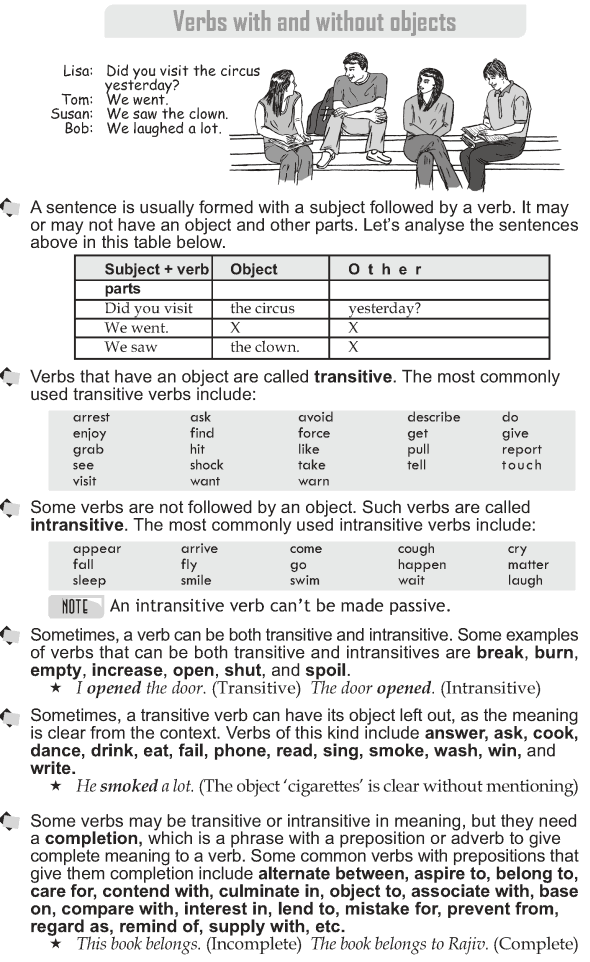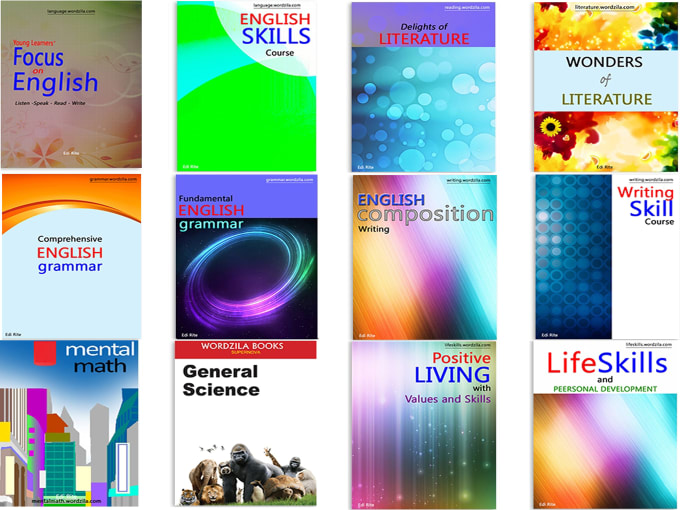Grade 10 Grammar Lesson 15 Verbs with and without objects
Do all verbs require an object?
What are transitive verbs? Do they have their passive forms?
What are some common transitive verbs?
What are intransitive verbs? Do they have their passive forms?
What are some common intransitive verbs?
Can a verb be both transitive and intransitive?
What is a completion?

- A sentence is usually formed with a subject followed by a verb. It may or may not have an object and other parts. Let’s analyse the sentences above in this table below.
|
Subject + verb |
Object |
O t h e r |
|
parts |
||
|
Did you visit |
the circus |
yesterday? |
|
We went. |
X |
X |
|
We saw |
the clown. |
X |
- Verbs that have an object are called transitive.
- Some verbs are not followed by an object. Such verbs are called
- intransitive. An intransitive verb can’t be made passive.ometimes, a transitive verb can have its object left out, as the meaning is clear from the context. Verbs of this kind include answer, ask, cook, dance, drink, eat, fail, phone, read, sing, smoke, wash, win, and write.
- Some verbs may be transitive or intransitive in meaning, but they need a completion, which is a phrase with a preposition or adverb to give complete meaning to a verb. Some common verbs with prepositions that give them completion include alternate between, aspire to, belong to, care for, contend with, culminate in, object to, associate with, base on, compare with, interest in, lend to, mistake for, prevent from, regard as, remind of, supply with, etc.
Go to page 1 2
